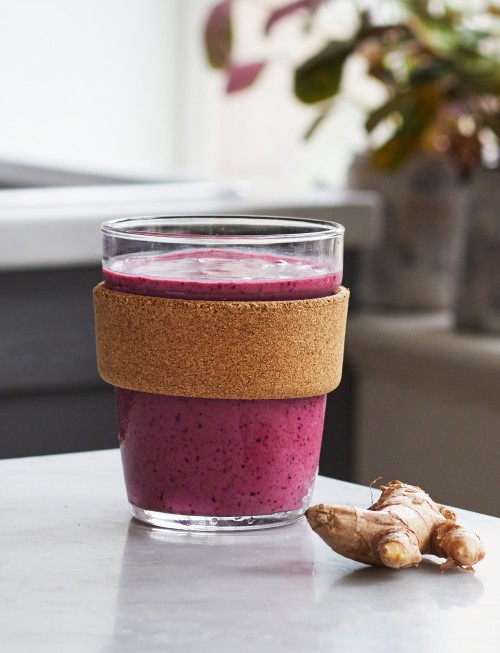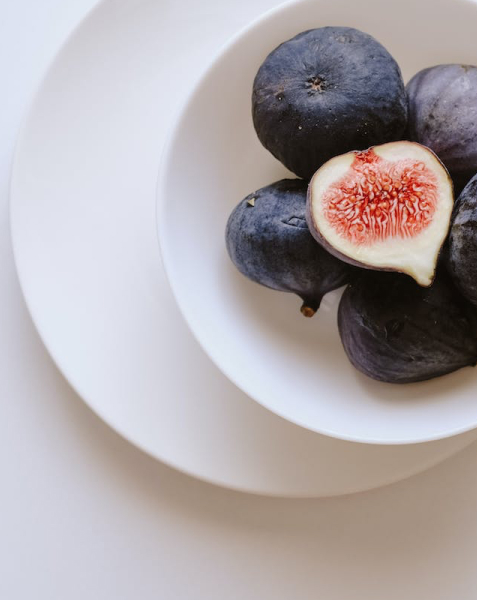We know that both nutrition and sleep play integral roles in optimum health, but does one affect the other?
The short answer is yes. It’s a complex relationship that works both ways: what we eat affects the quality of our sleep and the quality of our sleep affects what we eat, most notably shifting our cravings and calorie intake.
Which foods and drinks affect sleep?
Any food type that increases our level of alertness or arousal, like caffeine and alcohol, will promote more sleep fragmentation and an overall lower quality of sleep.
Caffeine
Caffeine is the antagonist (opponent) to the brain chemical adenosine, which helps us to feel sleepy. Adenosine naturally builds up during the day and helps us fall asleep at night, but too much caffeine in our system can give us a boost of alertness, therefore impacting our sleep drive and suppressing how much time we spend in the restorative deep-sleep stage.
Key take-home: enjoy caffeinated drinks before midday, and then aim to switch to decaffeinated coffee or herbal tea.
Alcohol
Alcohol also impacts our sleep quality by inhibiting our ability to get into rapid-eye-movement sleep, which leads to greater sleep fragmentation and therefore a reduced sense of rest the next day.
Key take-home: if you do drink alcohol, enjoy it when you have it, but try to leave at least a few hours between drinking alcohol and drinking, and consume water to dilute it down more.
Does the time we eat affect sleep?
Digestion and sleep are two huge biological systems that don’t work well at the same time. This is because one of the by-products of digestion is an elevated metabolism, which raises our core body temperature; however, to fall asleep, we need a 1°C reduction in core body temperature to fall asleep. So having a full stomach of food can delay sleep onset, but also having a stomach full of food when we’re going to sleep increases the proportion of food that is converted to fat.
Key take-home: avoid having heavy meals in the evening and try your best to leave a few hours between having dinner and going to bed. Giving your body time to digest the bulk of your meal before you go to sleep will improve the quality of your sleep and increase the likelihood of waking up refreshed.
Does sleep affect appetite?
Sleep is responsible for managing our appetite hormones: ghrelin and leptin. Ghrelin drives our sense of hunger, and leptin our sense of satisfaction and fullness. But when we are sleep deprived, our ghrelin levels increase and our leptin levels decrease, meaning that we’re hungrier and less easily satisfied. In addition to this, sleep deprivation knocks out an area of the brain called the pre-frontal cortex, which diminishes our willpower and ability to make rational choices. As a result, we’re less likely to make healthy choices when it comes to diet.
Key take-home: the main drivers of our appetite hormones are biological; so if you are sleep-deprived, be mindful of the fact that you might feel hungrier.
Which foods help better sleep?
While certain foods do contain higher levels of magnesium and tryptophan, nutrients that help us fall asleep, it’s best to focus on consuming a healthy and balanced diet. This will provide you with all the nutrients your body needs in sufficient amounts, including those that may increase your sleep drive.
Understanding that diet and nutrition can influence both our sleep quality and our ability to make healthy food choices creates the opportunity to eat smarter and sleep better. Although the relationships between what we eat and how we sleep are complex, the key to eating for better sleep is relatively simple: limit stimulants and heavy meals close to when you’re going to bed and focus on consuming a balanced, healthy diet.
Need more sleep prompts?
Try out meditations for sleep collection below.
 Membership
Membership Our Story
Our Story












